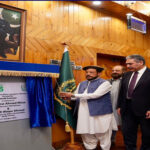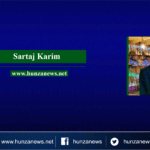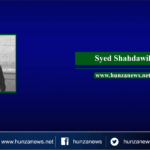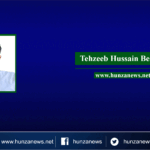NEW DELHI: A US diplomat in New Delhi was headed for home Saturday after being expelled in a bitter row over an Indian envoy’s arrest that has seriously strained ties between the two countries.
The US embassy official’s expulsion was splashed over newspaper front pages along with photos of the Indian diplomat, Devyani Khobragade, arriving in New Delhi late Friday, her palms pressed together in a traditional Indian greeting.
“I am really thankful for all your support. My government will speak for me, my lawyers will speak for me,” Khobragade, 39, who has left her husband and two children behind in the United States, told reporters Saturday.
The United States said late Friday it “deeply regrets” India’s expulsion of the US embassy official and wanted to mend a partnership that Washington hopes could be a bulwark against China’s growing might.
However, India’s orders to the US diplomat to leave within 48 hours, just as the row appeared to be cooling, suggested New Delhi was still not in a forgiving mood.
With general elections due by May, politicians have pounced on US actions calling them a violation of national sovereignty and saying the United States should not be allowed to ride roughshod over Indian interests.
“India hits back with diplomat expulsion,” said the Mail Today tabloid while the Indian Express newspaper said: “Delhi goes for revenge expulsion.”
Ties have frayed since December 12 when Khobragade, India’s deputy consul-general in New York, was arrested on charges of visa fraud involving her domestic servant and lying about how much she paid her.
She allegedly obtained a visa for her maid by promising to pay her $4,500 a month and then struck a secret deal to pay her 30,000 rupees a month, far below the US minimum wage.
But shortly before her US grand jury indictment Thursday, Washington granted the Indian officer – who has denied all charges – full diplomatic immunity, allowing her to return.
“Her head is held high. She knows she has done no wrong,” Khobragade’s lawyer Dan Arshack told AFP.
As the diplomat was flying back to New Delhi, India announced it had asked Washington to withdraw an embassy official in a fresh retaliatory measure.
“I can confirm a US official accredited to the mission in India will be leaving his post,” US State Department spokeswoman Jen Psaki, said.
The exact timing of his departure from India was unclear as the US embassy was not returning telephone calls.
“We deeply regret the Indian government felt it was necessary to expel one of our diplomatic personnel,” Psaki said. “We’re looking to move our relationship forward. We’re looking to move past this challenging time.”
At the same time, Psaki said Khobragade cannot return to the US unless she surrenders to the court.
The US embassy would not identify the expelled official but Indian newspapers named him as Wayne May, who managed security staff and was the US side to the anti-terrorism aid programme.
The expelled US diplomat was of “similar rank” to Khobragade and is suspected of having helped the maid’s family travel to United States.
US prosecutors said the maid’s family were evacuated from India because of alleged intimidation attempts, accusations that also riled India.
Khobragade’s arrest outside her children’s school and treatment in custody, where she was cavity searched, outraged India, which insisted she had diplomatic immunity.
US prosecutors disputed this, contending she was not a ranking embassy official, and filed charges.
India used bulldozers to remove security barriers at the US embassy in New Delhi and even stopped the mission importing duty-free alcohol.
Washington views India as a key ally in countering China’s regional rise and has invested heavily in improving ties. In 2010, US President Barack Obama called relations with India “one of defining partnerships of the 21st century”.
India has benefited from US backing to gain access to foreign nuclear energy technology.
While Americans took the maid’s side, many affluent Indians who pay their servants far less than Khobragade was accused of paying hers, supported the diplomat and viewed her treatment as high-handed superpower behaviour.
Even traditional US supporters were angered by Washington’s actions.
“The US is so good at arm-twisting – India is just playing their game,” the national president of the Indo-American Chamber of Commerce, Chella Srinivasan, told AFP in a recent interview.
express






















